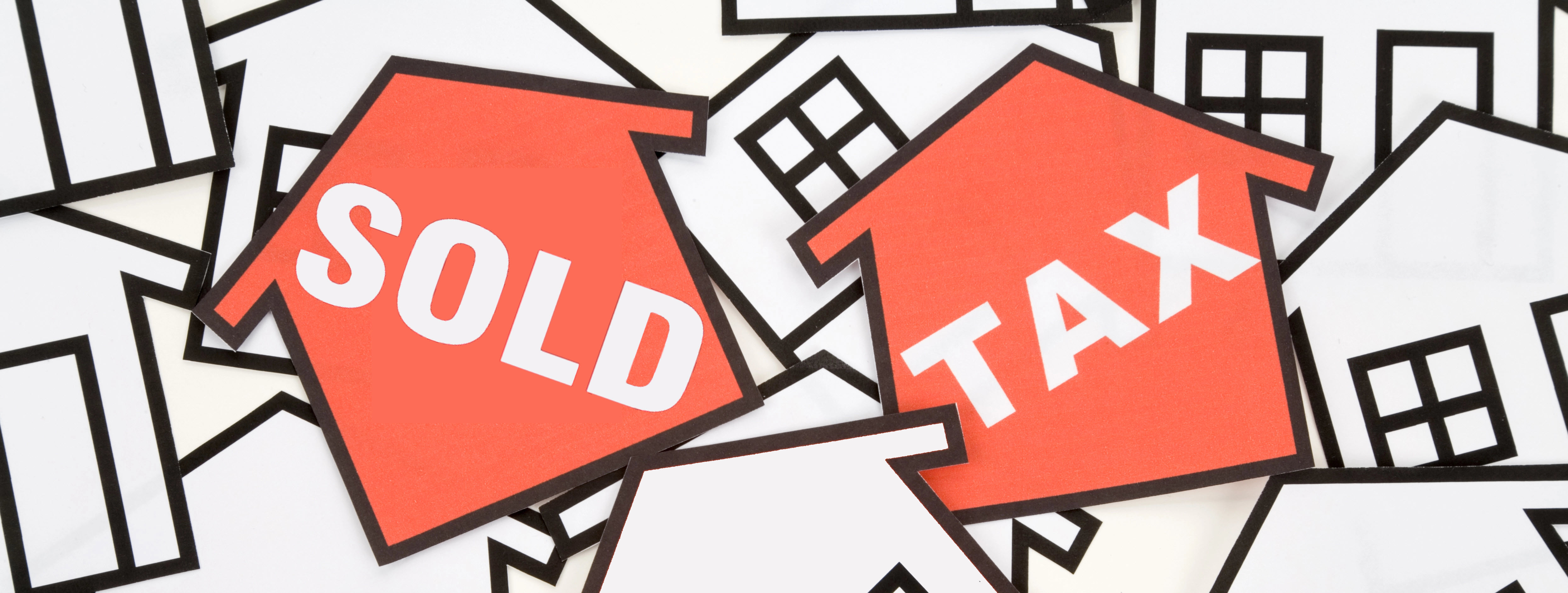
As experienced professionals in the housing and real estate market in Northeast Ohio, Realty Done recognizes the intricate relationship between home sales and tax obligations. Selling your home is a substantial financial undertaking with potential tax consequences where you may need to pay taxes on selling a house. This article explains the tax implications of selling a house in Northeast Ohio and provides valuable strategies for minimizing your tax liabilities.
DISCLAIMER: This post about taxes on selling a house is for informational purposes only and should not be considered financial, tax, or legal advice. We strongly recommend consulting with a qualified tax advisor for personalized guidance on your specific situation.
Do You Pay Taxes on Selling a House?
If your home has appreciated significantly, as is often the case in Northeast Ohio, you’ll likely make a profit when selling your home. But making a profit on the sale of your home likely means you owe the IRS money for the profits earned on the sale.
As an asset, your home is subject to federal capital gains taxes. In short, capital gains are the profits realized from selling capital assets – property like homes, vehicles, investments, and other valuable possessions.
Understanding Capital Gains Taxes on Selling a House
Now, let’s look at how capital gains taxes work and how they apply when selling your home.
A capital gains tax is levied on the profits realized from the sale of a capital asset. The IRS broadly defines a capital asset as virtually anything you own for personal or investment use, encompassing assets such as stocks, bonds, real estate, and even personal belongings. This tax liability typically arises on the tax deadline following the asset’s sale.
The IRS categorizes capital gains as either short-term or long-term. A short-term gain on home sales occurs when the property is sold within a year of purchase. The gain is considered long-term if the property is owned for a year or more. The amount of capital gains tax on a home sale is primarily determined by the length of ownership and the taxpayer’s income.
Short-term capital gains are taxed at your ordinary income tax rate. Long-term capital gains typically qualify for more favorable tax treatment, with potential rates of 0%, 15%, 20%, or 28%. These rates are determined by your income level and filing status.
Eligible homeowners may be able to exclude a substantial portion of their capital gains from taxation. Specifically, the first $250,000 (or $500,000 for married couples filing jointly) of capital gains from the sale of their primary residence may be exempt from taxation, provided certain conditions are met. This exclusion can significantly reduce or eliminate the tax liability on a home sale.
Capital Gains Tax Exclusions
When selling your home, you might owe capital gains taxes on any profit you make. However, the IRS does allow certain exclusions to most homeowners.
You can generally exclude up to $250,000 of the capital gains from your taxable income if you’re single. This exclusion increases to $500,000 for married couples filing jointly. To qualify for this exclusion, you must meet certain requirements.
For such an exclusion, you’ll have to meet these qualifying criteria:
- You’ve owned the home for at least two years during the past five years prior to the sale (this doesn’t have to be continuous). If you’re married and filing jointly, only one spouse needs to meet this requirement.
- The home was your principal residence for a minimum of two of the five years prior to the sale. For those married and filing jointly, both spouses must meet this requirement.
- You haven’t sold another home during the two years before the sale, or — if you did — you didn’t take the exclusion of gain earned from it.
Special Circumstances
Even if you don’t meet the exclusion criteria above, you may still be able to claim a full or partial exception on selling your home. The special qualifying circumstances here include:
- Gaining ownership of the home during a separation/divorce
- If your spouse died during your ownership of the home
- Owning a “remainder interest” in the home when selling
- Having your previous home condemned
- Being a service member during your ownership of the home
- Releasing the home in a “like-kind” exchange
Calculating Capital Gains Tax
To accurately calculate your potential capital gains taxes on selling your house, you must first determine your cost basis. The cost basis includes the original purchase price of the home plus the cost of any qualifying improvements made over time. For example, if you bought a home for $300,000 and invested $50,000 in renovations, your cost basis would be $350,000.
Next, subtract your cost basis from the final sale price of the home, minus any associated selling expenses such as real estate agent commissions and closing costs. The resulting difference represents your capital gain, which is the amount subject to potential taxation.
Here’s a breakdown of the steps to calculate your capital gains:
- Determine your cost basis: This is the original purchase price of the home plus the cost of any qualifying improvements.
- Calculate your net sales proceeds: This is the selling price of the home minus any selling expenses, such as real estate agent commissions and closing costs.
- Subtract your cost basis from your net sales proceeds: The resulting difference is your capital gain.
For example, let’s say you bought a home for $300,000, spent $50,000 on improvements, and sold it for $500,000. Your selling expenses were $30,000. Here’s how you would calculate your capital gain:
- Cost basis: $300,000 (purchase price) + $50,000 (improvements) = $350,000
- Net sales proceeds: $500,000 (selling price) – $30,000 (selling expenses) = $470,000
- Capital gain: $470,000 (net sales proceeds) – $350,000 (cost basis) = $120,000
In this example, your capital gain would be $120,000, which is the amount that would be subject to capital gains tax.
Get Professional Assistance
If this capital gains tax business seems complex and complicated, that’s because it certainly is. Be sure to consult a tax professional about paying taxes on selling a house in Northeast Ohio.

